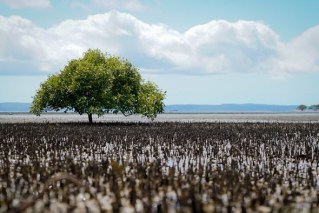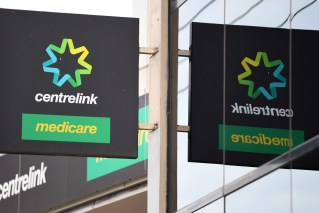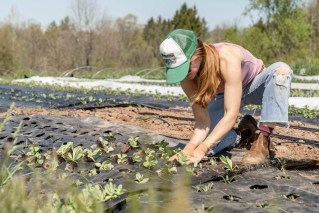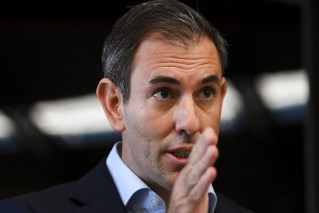Bouncing back: Century-old Queensland business fights off a US bid to lock it out
Lindsay Packer has been running family owned Packer Leather for the past 50 years. He’s seen it all before, writes Robert MacDonald

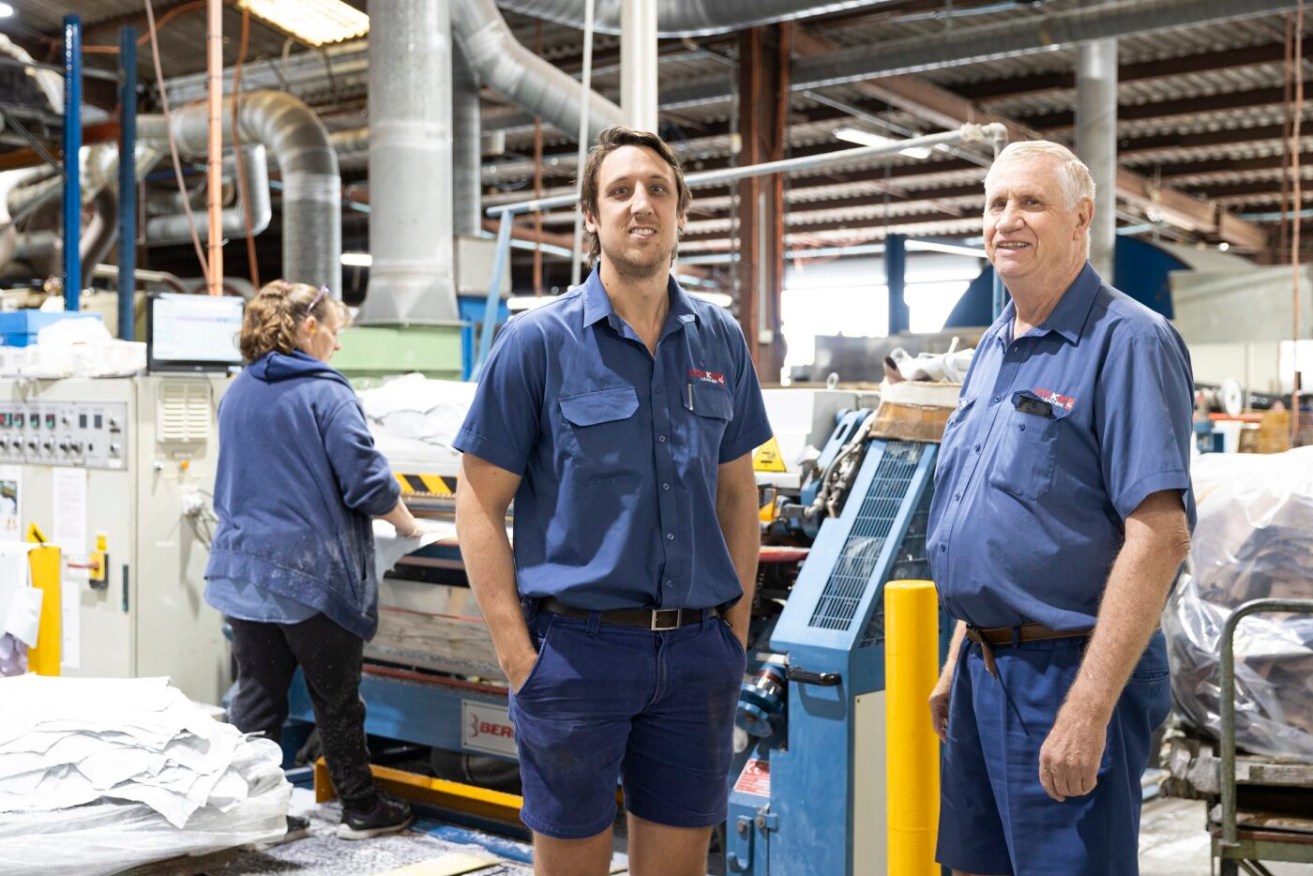
Lindsay Packer, chairman of Packer Leather with son Mark, in charge of production planning
Lindsay Packer, chairman of 130-year-old, family-owned Brisbane-based Packer Leather, seems completely unfazed that a posse of US Congress members is gunning for his company’s big seller – kangaroo skin.
Packer, now 77, has been running the company – Australia’s biggest kangaroo skin tanner – for the past 50 years and he’s seen it all before.
Eight Congressmen and women – Democrat and Republican – recently proposed a bill that would impose heavy fines for anyone importing kangaroo products into the US, on animal welfare grounds.
The Australian Government and the industry are fighting back with lobbying and invitations for the bill’s sponsors to come to Australia to see for themselves.
They say Australia’s kangaroo management is based on “sound science, animal welfare and environmental sustainability”.
Packer calls it a “secondary thing” – one of those distractions from your main business that crops up every few years.
“The biggest thing they can do to you is put doubt in your mind about what you should be doing,” Packer said.
“If you do nothing, then they’ve got you, rather than saying ‘okay, that’s there, let’s just carry on”.
Packer Leather has been doing more than just carrying on under Packer’s stewardship.
It has weathered countless “secondary things” – from previous US efforts to ban kangaroo products and the United Kingdom’s joining of the European Common Market in the early 1970s, to the rise of Chinese imports, the global financial crisis, fluctuating currencies and, most recently, COVID-19.
Through it all, Packer Leather has survived with two related strategies.
The first has been endlessly searching for new markets for kangaroo leather. Lindsay’s brother, Graham, as the company’s international marketing director, has been at it for decades now – visiting end users to build enduring relationships.
Packer’s client list today ranges from companies making everything from global brand soccer boots and motor bike racing leathers in Europe to Japanese ladies’ dress shoes, catcher’s mitts in the US and firefighter’s gloves in Canada.
The second has been innovation.
The big challenge, Packer explains, is working out how to add value to lower-grade kangaroo skins.
“You can always sell your top end but how you can work through the rest of it is the thing. That’s why we look for the equipment that can add something,” he says.
Packer Tanning installed Australia’s first computerised leather tanning system in 1988.
“At the time, we were laughed at by some of the biggest tanners around the place. They said we were wasting our time,” Packer says.
The company quickly saw the advantages in new technology and decided on “no more second-hand rubbish”.
It now has close relations with several machinery makers, mainly in Italy, and follow their innovations closely.
“They’ve been great to work with. With one company, we’re up to the fifth version of their machine,” he says.
“I just call it innovation.”
The company’s aim is to keep adding value to its skins before it ships them out.
It’s currently working on plans to make woven kangaroo leather mesh for use in footwear, handbags and the like.
It’s also developing the capacity to cut and print designs on the component parts of sports footwear, which would then be shipped to the manufacturer for final assembly.
The company has also just done a trial in Italy on using radio frequencies to dry leather.
“We’re not quite ready for it, but we’re getting ready for where we should go next,” Packer says.
“Some of it’s a little bit dreamy but it’s about thinking about tomorrow.”
More immediately, Packer Leather is focussed on climbing out of the COVID-19 induced slump that initially cut sales by around 50 per cent, starting a year ago when professional sports shut down around the world.
That hit not only the company’s export sales to the likes of Adidas and Nike but also its domestic market, where it supplies the leather for the Sherrin football and the Kookaburra cricket ball.
“We were going well this time last year but then it just fell off the perch,” Packer says.
He says the low point was in about April last year and that since then, things have been slowly improving.
“It’s not back there yet but this month is looking pretty good,” he says.
Meanwhile in the US, the Kangaroo Protection Act of 2021 has been referred to the House Judiciary Committee where it may sit forever given that thousands of bills are introduced to congress each year but relatively few are actually signed into law, given the complex nature of the US legislative system.
The previous US Congress introduced more than 10,000 bills between 2017 and 2019 but only 443 of these were signed into law by the president.
The first big challenge for the pro-kangaroo banners would be to find a suitable legislative vehicle to attach their proposal to. The next Farm Bill could be a likely candidate but that’s not due until 2023.
There’s also the question of how much support the proposed ban would actually garner in Congress.
Attempts to ban kangaroo products have come and gone in the US since the 1970s, led, perhaps predictably, by California.
No one’s quite sure why it has now re-emerged, a combination perhaps of the growing vegan leather push by animal activists and congress members engaging in some low-risk pro-environment signalling in a newly Democrat presidential era.
In the meantime, in the words of Lindsay Packer:
“Basically, you’ve just got to keep at it.”


